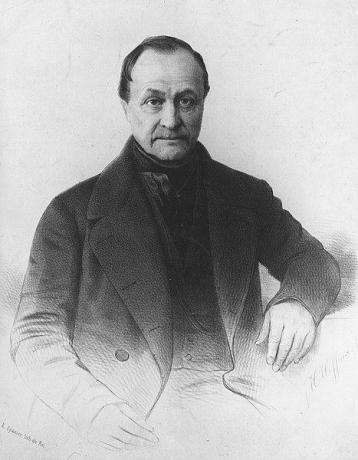Socrates, who lived in the century. IV a. a., faced the moral relativism in which the Greek democracy degenerated, with a simple method: it is necessary to know to be able to speak.
Democracy presupposed a isonomy or equality among citizens, enabling them to express their opinions and interests in assembly in community building. However, a scandal provided Socrates' inquisition: the scandal of logos. The latter lost its link with things (its consubstantiality) and was taught as a tool aimed only at convincing its opponent (opposite thesis).
The sophists claimed to be able to speak well on any subject, intending, therefore, to be bearers of universal knowledge. However, a man does not want to know everything (only a god). It was necessary, then, to show that the speeches of these pretentious men were speeches of illusion, which convinced by emotion or imagination and not by truth.
With this, Socrates created a method that many people still confuse today with just a figure of speech. THE irony
Socratic was, above all, the method of asking about a thing under discussion, of delimiting a concept and, contradicting it, refuting it. The verb that originated the word (eirein) really means asking. Therefore, it was not to constrain his interlocutor, but rather to purify his thinking, dispelling illusions. It was not intended to ridicule, but to break out of the aporia (that is, the impasse over the concept of something) the understanding.However, leaving the aporetic state required the interlocutor to abandon their preconceptions and relativity of the opinions of others who coordinated a way of seeing and acting and started to think, to reflect by itself. This exercise was what became known as maieutic, which means the art of giving birth. Like his mother, who was a midwife, Socrates believed that he was destined not to produce knowledge, but to give birth to the ideas coming from his interlocutors, judging from their value (the Greek midwife was a woman who could not procreate, she was sterile, and therefore, she gave birth to bodies from another source, assessing whether they were beautiful or not). It means that he, Socrates, had no knowledge, he only knew how to ask, showing the contradictions of his interlocutors, leading them to produce a judgment according to a reflection and no longer tradition, customs, opinions others, etc. And when the judgment was expressed, it was up to Socrates only to check if it was a beautiful speech or if it was an idea that should be aborted (false, erroneous speech).
Do not stop now... There's more after the advertising ;)
Thus, irony and maieutic constituted, par excellence, the main forms of action of the dialectical method of Socrates, dispelling mistakes and unraveling nuances that allowed introspection and internal reflection, providing more and more judgments based on the logos or reason.
By João Francisco P. Cabral
Brazil School Collaborator
Graduated in Philosophy from the Federal University of Uberlândia - UFU
Master's student in Philosophy at the State University of Campinas - UNICAMP
Philosophy - Brazil School
Would you like to reference this text in a school or academic work? Look:
CABRAL, João Francisco Pereira. "Irony and Maieutics of Socrates"; Brazil School. Available in: https://brasilescola.uol.com.br/filosofia/ironia-maieutica-socrates.htm. Accessed on June 29, 2021.

